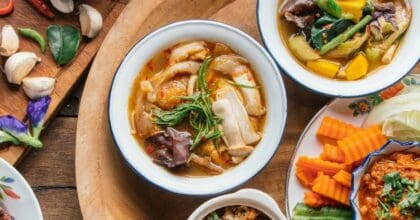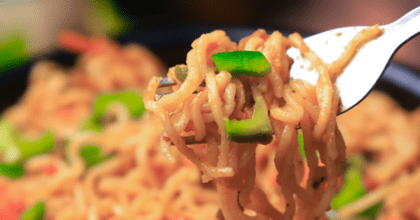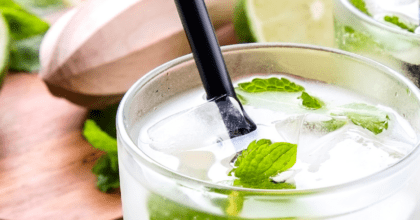Tis no longer the season to get merry: The alcohol industry counts the cost of a
As December starts – traditionally a time when we eat, drink and get merry – latest research from Mintel finds this year Brits could be drinking in less excess, as since 2000, alcohol sales in the fourth quarter of the year have dropped 10% in real terms compared to 4% for the alcohol market as a whole.
In real terms Q4 (October-December) alcohol spend has declined from £11.5 billion in 2000 to £10.4 billion in 2009, costing the industry over a billion pounds in lost revenue. Mintel forecasts that there are even tougher times to come as 2009 saw a huge 9% drop (from £40.5 billion in 2008 to £37 billion in 2009) in annual UK alcohol revenue and 2010 has continued to see constricted levels of consumer spend.
Jonny Forsyth, Senior Drinks Analyst at Mintel, said:
” over the past decade, Christmas has become steadily less profitable for the alcohol industry. However, since the economic downturn, sales have plummeted further and Mintel forecasts that Christmas 2010 is likely to see this downward trend continue. The VAT increase and above inflation excise duty increase planned for 2011 will also raise the cost of most alcohol drinks by as much as 8%, which will be a hard pill for consumers to swallow as they continue to feel the pinch. “
Mintel’s research also shows that just three in ten (30%) Brits are in a ‘good’ position to spend on discretionary items over Christmas 2010, while a further three in ten (31%) can only afford to spend ‘very cautiously’. Furthermore, as many as four in ten (39%) are in no position whatsoever to spend, due to struggles with debt and/or worry about their worsening financial situation.
While indulging in booze at Christmas has long been the norm in Britain, with alcohol sales traditionally seeing a distinct uplift in the fourth quarter of the year, latest research from Mintel finds attitudes are definitely changing. Young (18-34 years-old) drinkers apart, more health-conscious UK consumers have become less laissez faire about Christmas drinking, as over a third of the population (35%) now disagree with the notion that” christmas would not be the same without drinking. “
“While over-indulging on alcohol used to be synonymous with Christmas tradition, alcohol drinkers can no longer easily rationalise such excesses, as they become increasingly aware of the adverse effects of alcohol. Not only that, money is tight. Research shows that apart from the optimistic young adults, the bulk of consumers are decidedly pessimistic about their financial situation improving over the next six months, suggesting that the alcohol market is in for a difficult Christmas. “Jonny adds.
It seems Wine is top of the shopping list for Brits when it comes to Christmas alcohol with the top five drinks purchased at Christmas ranking as: 1. Wine (65%) 2. Lager (51%), 3. Champagne/sparkling wine (33%), followed by vodka and liqueurs (both 24%). However, one of the key problems for the drinks industry is the heavy drinks discounting that takes place in the big grocery multiples at this time of the year, something which has trained three-quarters (76%) of consumers to look for bargains when they would otherwise be trading up.
“While food prices rise each December, capitalising on people’s greater desire for home-entertaining, alcohol prices go down – even though a quarter of people are looking to buy better quality alcohol than usual to celebrate. Not only is this damaging and short-termist when it comes to alcohol brand-building, but it is also leading to diminishing returns for supermarkets and alcohol producers alike as the population buys less alcohol and at cheaper prices. “Jonny continues.
Nevertheless, there are massive opportunities at this time of the year. As many as nine in ten (90%) Brits buy alcohol at Christmas, despite the fact that 17% of the population are now tee-total. Indeed, three in five (61%) Brits buy alcohol as a gift over the Christmas period, including consumers who would otherwise not buy alcohol during the rest of the year. The same proportion (61%) also ensure that they stock up on alcohol for when guests come round – even if they do not drink themselves – claiming that ‘as good hosts they must provide for others’.
“Looking long-term, alcohol producers will want to claw back some of their declining profit by tackling the endemic discounting culture which leads to three-quarters of UK drinks buyers shopping around for bargains over Christmas – a time when indulgence and reward are foremost on their minds. However, with the power resting in the hands of the supermarkets there is only a limited amount they can do. “Jonny concludes.
Finally, online is an increasingly important retail channel for alcohol at Christmas, with 6.5 million Brits admitting they are more likely to buy alcohol online at Christmas than other times of the year, which is understandable considering that two in five (42%) generally buy alcohol in bulk over Christmas.
-
Mintel StoreGet smart fast with our exclusive market research reports, delivering the latest data, innovation, trends and strategic recommendations....View reports
-
Mintel LeapMintel Leap is a revolutionary new AI-powered platform that will transform your research process....Book a demo







































